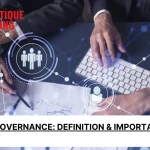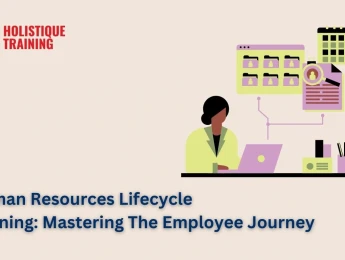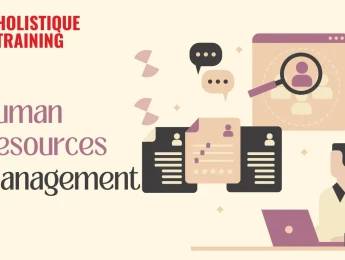Decision-making analytics in Human Resources (HR) are crucial in shaping organisational strategies and ensuring effective workforce management. These analytics derive from various data sources, including employee performance metrics, recruitment data, employee surveys, and other relevant HR information. The foundation of decision-making analytics lies in collecting and analysing vast amounts of data to identify patterns, trends, and correlations within the workforce.
Organisations must adopt a systematic approach to harness decision-making analytics for strategic planning in HR to streamline data collection processes for greater accuracy and relevance. This involves gathering data on employee performance, engagement, turnover rates, and other key HR metrics. Advanced technologies such as artificial intelligence and machine learning can assist in analysing large datasets to extract valuable insights. Once the data is collected, HR professionals can use analytics to identify areas for improvement and make informed decisions.
Decision-making analytics enable HR teams to measure the success of their strategies over time. Regular monitoring and evaluation of key performance indicators provide valuable feedback, allowing organisations to adapt and refine their HR strategies for continuous improvement.
Upon completion of this course, participants will be able to:
- Develop a comprehensive understanding of contemporary Talent and HR analytics.
- Use HR data to enhance and inform business decision-making.
- Implement fundamental forecasting tools for strategic planning.
- Elevate HR into a strategic role within the organisation.
- Encourage HR managers and practitioners to transition from routine management to predictive management using cutting-edge talent/HR analytics tools.
- Integrate modern Human Capital management processes to enhance HR sophistication and cohesion.
- Streamline and harmonise the delivery of HR services for optimal efficiency.
- Familiarise yourself with exemplary instances of organisations effectively employing talent/HR analytics best practices.
This course is designed for anyone responsible for data collection or utilisation to make information strategic decisions within an HR department. It would be most beneficial for:
- HR Professionals
- Data Analysts
- Business Owners
- Operations Managers
- Supervisors
- HR Business Partners
- Business Analysts
- Recruiters
This course uses a variety of adult learning styles to aid full understanding and comprehension. Participants will review various data collection methods and discuss the best metrics for employee decisions.
They will work in groups to discuss the different types of decisions required on a HR basis and understand how best to avoid risks and reduce costs using active and available data.
Day 5 of each course is reserved for a Q&A session, which may occur off-site. For 10-day courses, this also applies to day 10
Section 1: What Are HR Analytics?
- Introduction to HR analytics essentials.
- Key concepts in HR data analysis.
- Data-driven decision-making in HR.
- Tools and techniques for HR analytics.
- Predictive analytics in human resources.
- Integrating HR analytics into organisational strategy.
- Talent analytics and workforce planning.
- Performance metrics and benchmarking in HR.
- Enhancing employee engagement through analytics.
Section 2: How to Manage the Future Based on Data Trends
- Understanding emerging HR data trends.
- Strategic planning with future-focused HR data.
- Adapting HR policies to future workforce dynamics.
- Leveraging predictive analytics for talent management.
- Data-driven insights for succession planning.
- Navigating evolving employee expectations through HR data.
- Anticipating and addressing skill gaps through data analysis.
- Aligning HR practices with industry-specific data trends.
- Implementing agile HR strategies based on future data projections.
- Proactive workforce planning using predictive HR analytics.
Section 3: Human Capital Management
- Foundations of Human Capital Management (HCM).
- Aligning HCM with organisational goals.
- Strategic workforce planning.
- Talent acquisition and recruitment strategies.
- Employee onboarding and retention.
- Performance management in HCM.
- Learning and development initiatives.
- Compensation and benefits in Human Capital Management.
- Employee engagement and satisfaction.
- Diversity and inclusion in HCM.
- Technology integration for efficient HCM.
- Measuring and optimising HCM effectiveness.
Section 4: Using Big Data Applications for Strategic Decision-Making
- Big Data tools and technologies.
- Harnessing Big Data for strategic decision-making.
- Analysing large datasets for actionable insights.
- Integration of Big Data with organisational strategy.
- Predictive analytics for strategic planning.
Section 5: Talent Management Through Analytics
- Using analytics to identify high-potential employees.
- Optimising employee engagement through data insights.
- Personalising learning and development programs with analytics.
- Compensation analytics for talent retention.
- Addressing skill gaps and upskilling through data analysis.
- Leveraging technology for efficient talent management.
- Monitoring and adapting talent strategies based on analytics.
Section 6: Performance Management Through Analytics
- Continuous feedback through analytics.
- Employee development based on performance data.
- Performance recognition using analytics.
- Identifying and addressing performance gaps.
- Analytics for team performance management.
- Technology tools for performance analytics.
Upon successful completion of this training course, delegates will be awarded a Holistique Training Certificate of Completion. For those who attend and complete the online training course, a Holistique Training e-Certificate will be provided.
Holistique Training Certificates are accredited by the British Assessment Council (BAC) and The CPD Certification Service (CPD), and are certified under ISO 9001, ISO 21001, and ISO 29993 standards.
CPD credits for this course are granted by our Certificates and will be reflected on the Holistique Training Certificate of Completion. In accordance with the standards of The CPD Certification Service, one CPD credit is awarded per hour of course attendance. A maximum of 50 CPD credits can be claimed for any single course we currently offer.
- Course Code PH1-127
- Course Format Classroom, Online,
- Duration 5 days














